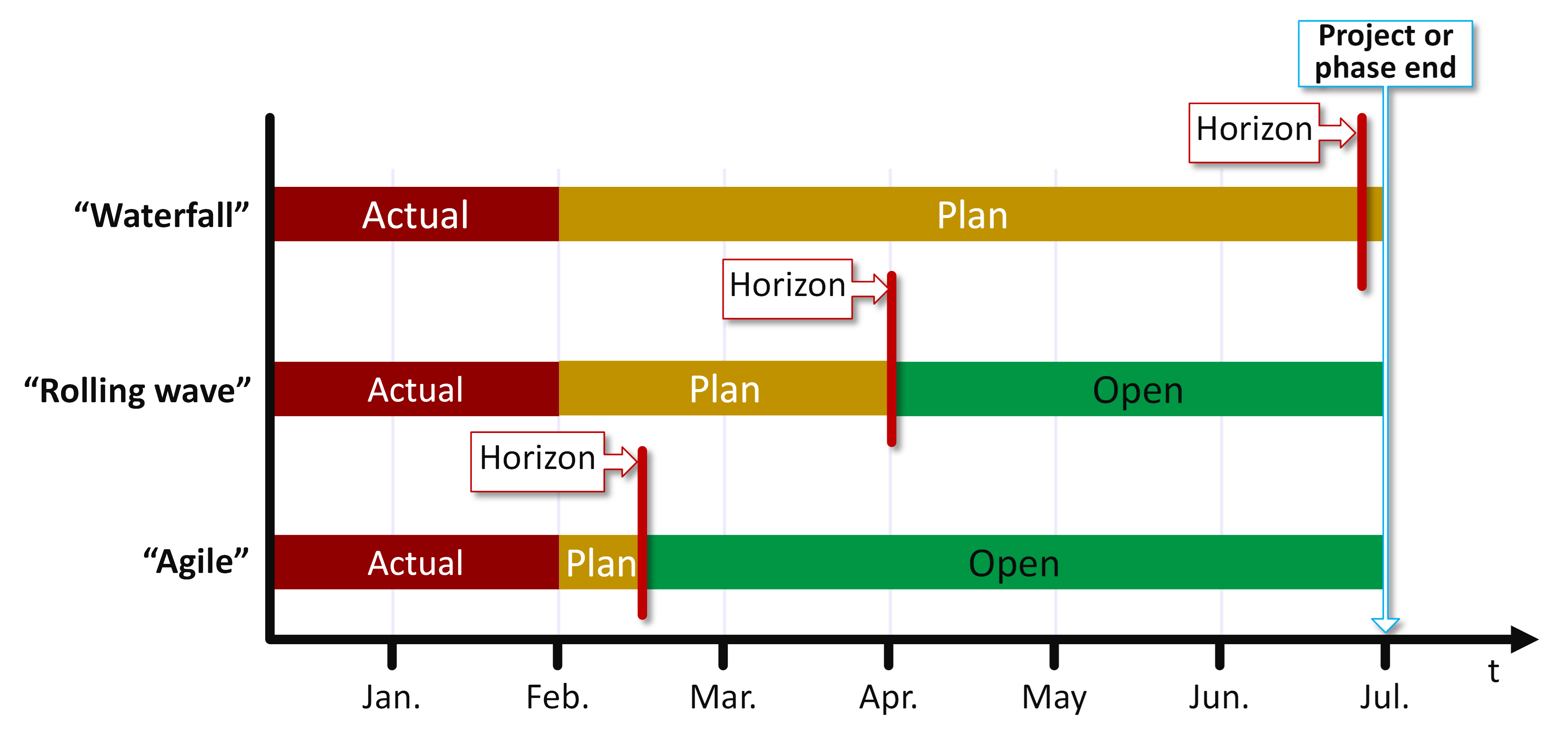Project Business Management
SERIES ARTICLE
By Oliver F. Lehmann
Munich, Germany
“Life can only be understood backwards; but it must be lived forwards.”
― Søren Kierkegaard

Summary
A trend in the last years was to ignore long-term predictability and order in projects and to favor agility and transformational leadership.
In project business management however, the need to be organized for predictive approaches as well as for agile approaches may be necessary to ensure the happiness of the teaming partner in the project and to ensure compliance with the contract. The ability to change between the approaches is a core element of “Situational Project Management”.
The Right Approach Can Save the Day – the Wrong One Can Spoil It
A situational approach to a software project
A major harbor had a project to renew the software landscape for several container terminals. In the past decades, each of these terminals had developed own software systems for the management of ships, trucks, and the internal container-handling infrastructure. Some terminals were acquired from other operators and were still running on different custom-made software as well. This hotchpotch of different software systems that was historically grown made it hard to consolidate the data from the different systems and to implement new software solutions that would need to deal with a variety of data interfaces.
The company operating the terminals had decided to buy a standard software solution and customize it to the own needs. Customization mainly meant developing software that would help the system to mirror and support the processes of the organization. So the first phase for the software developers developing the customization code was to discover these processes and identify the specific needs of the company.
One difficulty during this discovery phase was the variety of processes and requirements that also had grown over time. This came somewhat unexpected to them, because in essence all terminals had the same job. Soon they found that the schedule for this discovery phase became worthless, because each discovery leads to new requirements that the software had to meet. A nearby consultancy recommended for this phase to turn to agile methods which are better able to guide the project through the discovery phase and allow for adaptations where it was necessary based on the operative processes that were identified.
Figure 1 illustrates the connection of planning horizons with methodological approaches.

Figure 1: Scheduling and other forms of forecasting and planning in a project can be understood as a grey-shade area of rolling-wave approaches between two extremes, waterfall and agile.
Later in the project, the new solution, which consisted of the standard software and the customization code could be implemented. At that point, the company found that the agile methods that were so helpful during the discovery phase we are no more suitable. The implementation necessitated a highly granular planning approach with a planning horizon far in the future. This is something that agile methods have not been developed to provide and therefore could not support.
More…
To read entire article, click here
Editor’s note: This series of articles is by Oliver Lehmann, author of the book “Project Business Management” (ISBN 9781138197503), published by Auerbach / Taylor & Francis in 2018. See author profile below.
How to cite this article: Lehmann, O.F. (2021). Predictability & Order in Project Business, PM World Journal, Vol. X, Issue II, February. Available online at https://pmworldlibrary.net/wp-content/uploads/2021/02/pmwj102-Feb2021-Lehmann-Predictability-and-order-in-Project-Business-PBM-2.pdf
About the Author

Oliver F. Lehmann
Munich, Germany
![]()
Oliver F. Lehmann, MSc, ACE, PMP, is a project management educator, author, consultant, and speaker. In addition, he is the President of the Project Business Foundation, the home association for professionals and organizations involved in cross-corporate projects.
He studied Linguistics, Literature and History at the University of Stuttgart and Project Management at the University of Liverpool, UK, where he holds a Master of Science Degree. Oliver has trained thousands of project managers in Europe, USA and Asia in methodological project management with a focus on certification preparation. In addition, he is a visiting lecturer at the Technical University of Munich.
He has been a member and volunteer at PMI, the Project Management Institute, since 1998, and served as the President of the PMI Southern Germany Chapter from 2013 to 2018. Between 2004 and 2006, he contributed to PMI’s PM Network magazine, for which he provided a monthly editorial on page 1 called “Launch”, analyzing troubled projects around the world.
Oliver believes in three driving forces for personal improvement in project management: formal learning, experience and observations. He resides in Munich, Bavaria, Germany and can be contacted at oliver@oliverlehmann.com.
Oliver Lehmann is the author of the books:
-
- “Situational Project Management: The Dynamics of Success and Failure” (ISBN 9781498722612), published by Auerbach / Taylor & Francis in 2016
- “Project Business Management” (ISBN 9781138197503), published by Auerbach / Taylor & Francis in 2018.
His previous articles and papers for PM World Journal can be found here:









